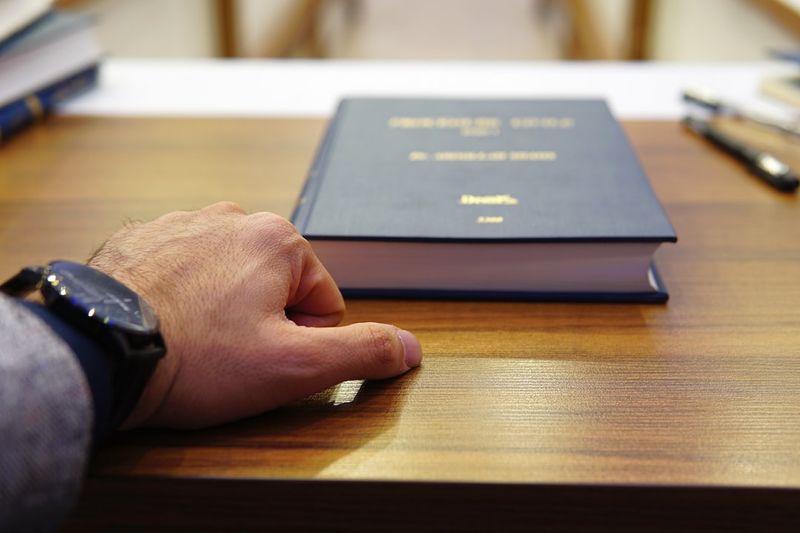On June 5, the Uzbekistan Supreme Court upheld the 16-year prison sentence of lawyer and blogger Daulet Tazhimuratov, while either reducing sentences or implementing non-custodial measures for the remaining 14 individuals involved in the “Nukus case”. The Nukus case refers to charges stemming from the July 2022 protests in the Karakalpakstan region, an area that has been deemed a “sovereign democratic republic” with the right to secede from Uzbekistan by its constitution. Tazhimuratov was convicted of separatism, a charge he consistently denied, with his appeal centering around the constitutionality of Uzbekistan’s 2021 amendments that deprived Karakalpaks of their right to political self-determination. While some defendants received reduced sentences or were released entirely, Tazhimuratov’s sentence was confirmed despite video evidence, indicating that he had been advocating for peaceful protests, not separatism.
Table of Contents
Double Standards in the Uzbek Legal System
Tazhimuratov’s case is a clear example of double standards within the Uzbek legal system. The judiciary favored defendants who expressed regret or remorse, while neglecting evidence that would exonerate Tazhimuratov. The United Nations and other human rights organizations have repeatedly documented the use of torture and enforced confessions in Uzbekistan’s criminal justice system. Tazhimuratov had publicly denounced the torture he experienced in detention, but authorities failed to investigate his claims.
Flawed Legal Proceedings and Violations of Fair Trial Rights
Tazhimuratov’s trial was plagued by violations of fair trial rights and flawed legal proceedings. The lower court that sentenced him relied on court-appointed “experts” and witness testimony to justify the charges without adequate reasoning, which Tazhimuratov’s lawyer effectively disputed during the appeal. Furthermore, Tazhimuratov’s legal team was not provided with sufficient access to relevant court materials and information, resulting in a clear lack of transparency in the judicial process.
International Obligations to Uphold Human Rights
As a party to international human rights treaties, Uzbekistan has an obligation to uphold the right to freedom of expression and fair trial rights. The international community must hold Uzbekistan accountable for its violations, particularly as authorities continue to crack down on dissent before the upcoming presidential election. The election is expected to be uncontested, and President Shavkat Mirziyoyev has branded himself as a “reformer” committed to respecting and upholding citizens’ rights. However, the Tazhimuratov case reveals the reality of continued suppression of free speech and peaceful expression by the Uzbek state.
Editorial: Freedom of Expression and Political Self-Determination
Tazhimuratov’s case highlights the critical importance of freedom of expression and political self-determination. Instead of stifling peaceful political expression from emerging voices, Uzbekistan’s leadership must work to create an open and inclusive environment where citizens can express their views freely and without fear of persecution. The international community must call on the Uzbek government to take concrete steps to protect human rights and ensure that all individuals have the right to political and cultural self-determination.
Advice: Encouraging International Action
The international community must speak out against Tazhimuratov’s unjust imprisonment and push Uzbekistan to fulfill its human rights obligations. Governments must use their leverage to advocate for his immediate release, while civil society and media organizations must continue to publicize his case to promote greater awareness. Individuals must demand accountability and transparency from their elected representatives, encouraging them to apply diplomatic pressure and support international human rights mechanisms. Only through coordinated efforts can we ensure that Tazhimuratov’s right to a fair trial and political expression is upheld, and his voice is not silenced.

<< photo by Mr. Mojtaba >>
You might want to read !
- The Persecution of Free Speech in Russia: Human Rights Defender Oleg Orlov Faces Trial for Criticizing the Military
- The Continuing Injustice of the Rwanda Genocide: An Editorial Exploration
- Respect for human rights in China at risk as lawyer reporting torture is sentenced to jail
- “New report reveals how Taliban’s brutal offensive in Panjshir constitutes a war crime of collective punishment”
- “Acquittal of human rights defenders marks a step towards justice in Turkey”
- Saudi Arabia’s Pro Golf Merger Is An Attempt to “Sportswash” Human Rights Abuses